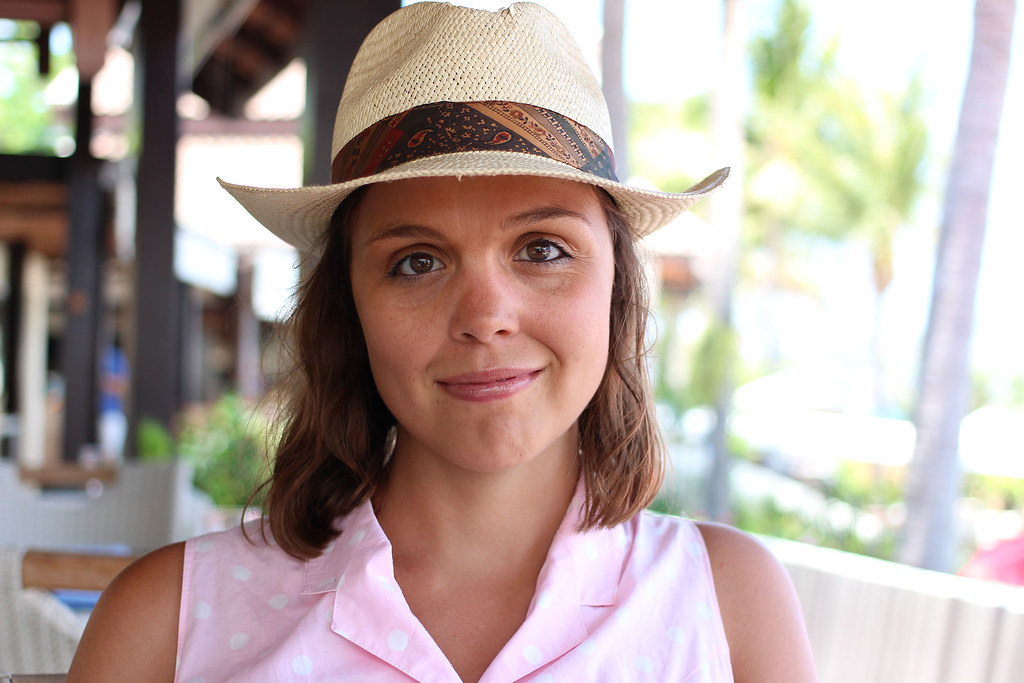
Welcome to the second part of my How to Write a Book series documenting all the steps I take in writing the book I'm currently working on, a novel. Today I'm documenting what I did to develop my idea for a story into something bigger, i.e. something that I could write a book about. If you'd like to go back one step, you can read about how I came up with the story idea, or if you'd like to jump forward, you can find out how I wrote an outline for my book here. Be sure to check out this tag to find all the posts in this series, and you can find lots of writing advice on my blog here.
What is story development?
So, in my last post -
the first in this series of posts for my How to Write a Book series - I said that the second step of this process that I would document would be sharing how I created a plot outline for the whole story. However, when I took a little time away from this, and returned to the original notes that I made once I had started to put pen to paper - or in my case fingers to keyboard - I realised that actually there was a step in between
how I came up with the story idea and then writing the outline, and that was developing the idea itself.
Story development - as far as I can see it - is the process of turning a seed of an idea into something more concrete, something that has a beginning, a middle and an end, or at least some kind of archor journey, i.e. it doesn't stay stationary or in the same place. Typically, if you're writing fiction, this will centre around one person's journey or experience, though when developing (or later writing) your story you may find several smaller stories or character journeys stem from the original idea. Story development allows for this to happen, or it builds the foundation for this to happen at a later stage.
For non-fiction, while the term story may not seem like it applies, I strongly believe that every single book documents some kind of journey and so consider this stage the time when you go from thinking "I want to write a book about X" to "I will write a book about X and it will feature A, B and C". For the rest of this post, non-fiction writers may feel a little excluded because my personal experience is about writing fiction, but I hope there are still things to take on board that you will use or find useful because any thought, planning or time you give your book idea is always time well spent.
Yes, I did A LOT of story development in my head before I put pen to paper - asking myself questions, thinking about possible answers, building up characters (by thinking about their looks, backgrounds, personalities, own personal struggles) and more - but when it came to putting some of these thoughts into words on a screen that I would then use to build a real story around, I actually sort of took a step back and away from the book.
This post will explain more about what I mean when I say I created distance between myself and the book I'm trying to write, and it will show you how I developed the idea from more than a brain dump into something I could write a book about that very importantly, readers would enjoy,
As with all of these
How to Write a Book posts, and nearly everything I write offering advice on the craft of writing, I write only from my own personal experience. I have read some books on writing fiction (from planning and productivity to writing styles and techniques) but I haven't studied it in any official capacity, and I would never dream to call myself an expert or even a very effective author; there are many reasons I haven't yet finished or published a novel, and it's to try and overcome these obstacles that I'm actively writing this series of
How to Write a Book posts, so I can learn and grow from the experience.
However, I have been writing fiction for pleasure and for publication for many years, and since publishing
my first collection of short stories in 2012, I have learned more than I suspect any MFA could teach me thanks to working with a number of different editors, listening to readers' feedback, studying other works of fiction intently, reading several books about writing and reading fiction across nearly all genres like it was my job. While I know for certain my book writing process isn't and will never be perfect, I do believe it is something others - especially first time writers of fiction - could gain knowledge and comfort it, and that's why I write these posts.
So, here we go. This is how I developed my story idea from a tiny little seed that I wouldn't even notice sitting on top of a burger bun to something I could write an outline for that was so chewy it deserves to be in the bun! And I promise here is also where any terrible metaphors like that stop.
How to develop a story idea beyond just an idea
Ideas are lovely. Ideas are what makes this process a bit magical because it's the first message you receive about a story that could turn into something great, and it's the first exciting step in a book being written. It's also something that for a while exists solely in the writer. Think about your favourite book or film or TV show. Don't you think it's incredible that this thing you love and feel so moved by started off as just a little random idea in someone's brain?
I want you to know that your story idea is just the same as that special seed. You need that seed in order for something great to exist, but it's a long journey getting from A to B. Yes, that special seed has the potential to grow into a book, but all seeds need water and nourishment to flourish and grow. And this nurturing stage begins with the seed take some roots, and that's what I see story development like so be prepared to get dirt under your nails and for this process to feel like nothing's happening because you can't see any flowers or even a seedling poke it's green head above the soil; it's still valid, and it will not happen over night. And now I'm also going to stop with the cheesy horticultural metaphors because I am no gardener.
So, how do you develop an idea so that it starts to look like a story? Ultimately this is a process that involves a lot of exploration. How you do the exploring is very personal to the type of writer you are and the type of brain you have. Some people will maybe start researching a topic or a theme or a person or a time in history in order to see if there is a story in an idea. Others will maybe do a brainstorm map creating like a spider's web of connecting events, thoughts, ideas, and characters (I have done this before). In the past, with my short stories, I've found writing something of a blurb or elevator pitch as a good way to see if the idea could be shaped into a story as you need to have something of a beginning middle and end, and you need to have a hook for the reader, when doing this. Sometimes you need repeat these processes again and again and again until you have something that feels or looks right.
Story development looks different for everybody and don't be afraid to find your own way or a number of different methods to do it. When I think about story development, and definitely for this particular story I'm documenting, the word that comes to mind is "play". Play with the idea. Give it different outcomes and see which ones feel good or like something you want to write about. Play with the potential characters in your mind. Who are they? What do they look like? What are their struggles and their motivations?
And then, and I've learned this slowly after years of writing novels that didn't go anywhere, think about the story from a reader's perspective. What could a story based on this idea bring to a reader? How would it make them feel? What do I want to make them feel? Would this story's events or outcome make a reader happy, sad, scared, inspired, shocked...?
With all this in mind, I think I can summarise that there are really two facets of a developing an idea from a seed to a real story; a) Asking yourself what could I do with this?, and b) Asking yourself what a reader would then do with it too?
You can tackle these through pages of pages of notes or brainstorms or research or talking it over with someone else, but what I discovered came more naturally to me (rightly or wrongly) for this story was actually just mentally thinking about this process over a long period of time... And only after that did I put pen to paper and in doing so continued this question-and-answer process.
Questions I thought about for story development
Jumping forward a little, what was so interesting about this story idea was that I felt more ready to write an outline than I had with any of my other novel ideas. I think that this was partly because I'd spent so long thinking about the story that parts of it were already familiar or decided upon. Previously, I have often had a few clear scenes and even possible endings for a story clear in my head, but much of the meat of the story remains a little, well, hazy... and not in a good way. There was no clear structure, no obvious path from A to B to C and so on. But with this book I could see most of the steps in the middle as well as how it would start and how it would potentially end. This was very interesting to me, and with hindsight I think it was because I have learned A LOT from those unfinished, un-mapped out novels. Firstly, the topics and themes of those books have been too big (too many events, too many subplots, too many characters) and secondly, I started writing too quickly. I was swept away in a mysterious or romantic idea and I just wanted to play with the people and themes I knew (and still know!) to have big appeal. However, this led me down a path that was fun, but ultimately directionless. I was wandering and some books that flow like this - with no clear structure or purpose or focus - are beautiful and ethereal and charming, I have discovered I am a long way from writing such a novel. And I don't refer only to the quality of the work, I also refer to my enjoyment of and satisfaction in the process. Because for me at this early, time-sucking phase of being an author of fiction, finding pleasure and fulfillment in the hours I spend writing a book are absolutely necessary.
So yes, I have learned that I need a more manageable idea and I need focus. With this story idea, after a year of thinking about it I began to feel confident that I finally had a manageable idea, so now it was time to create the focus.
I found focus and began fleshing out my story idea by asking myself a number of questions that I know I will have to answer about my book should it get beyond the early draft stage. These are questions an editor or beta reader or agent or publisher and eventually, a paying reader will want answers to. Why not try to answer them now in order to test if the seed has the potential to grow?
I can't honestly say that I wrote down each of these questions and penned an essay in response, but I can confidently say I have considered these and many others in a lot of detail, and I did write some down and used bullet points or longer sentences listed as answers in the first document I created when I began writing down things relating to my story idea.
Here are the key questions that helped me develop my idea from a seed to something close to a plot.
- What are the main themes I want to write about in this book? In many ways I was already thinking or focusing on these before I came up with the story idea, and this is not the usual order of things for me. But because I do have personal experience of postnatal anxiety and depression, these topics have been in my head for a long time, and so of course that fed by story idea generator machine, aka my daydreaming muscles! But I also want there to be other themes, some connected, some deliberately not to offer a little relief and added depth to the story. Motherhood, family, love, female sexuality, relationships, self-love, and identity are other themes that have popped up in my mind since letting the idea brew and develop.
- Have I read anything like this before? If originality is a concern for you (and I don't necessarily think it should be because all ideas are original) then this is a good first step to check you are confident in your idea's originality. You can even search Google or Amazon for "a book about XX.." or whatever your themes are in order to check if a similar story exists. I didn't take this extra step, I just thought about similar books and considered how I could make my story different, which helped to develop the plot in itself.
- What is the story trying to achieve? Of course a story doesn't have to achieve anything in terms of a reward or a certain goal, but I always think it's good for a story to have a direction and for you as the author to have certain things in mind about what you want your story to cover, or not to cover. Personally, I like to make my readers feel and think, and so I spent a lot of time thinking about how I could do this with my story idea.
- How do I want readers to feel? This is very much connected to the question above but goes one step further. I know I want to make my readers feel a connection to the main character (which I also know I'm going to have to work hard at because my first impression of her right now is that she's coming across as a bit difficult to like, but I'll work on that!) and I want them to also empathise with her struggles but also see a bigger picture and context that maybe she can't, at least not until the end. I want readers to think about how we make our lives harder than they need to be, and I want readers to think about what becoming a mother can do to a woman in this modern day and age when she is fed so many different messages. These are just some of the few things I hope to make my readers think about and feel with this story.
- What's my main character's main struggle? Most books about writing fiction and novels in particular really drill down on this question being the crux upon which everything else in the story connects to. Readers have to go on a journey with a main character or main characters. One of the novels I've written that is now stalled in second draft mode actually had three main characters and while I still hope one day to make it work, I can see how just having one main character for this story is really helping me focus on this single struggle and to be more confident about taking reader's on a journey. At least that's my hope. And to answer this question... Well, in a nutshell, my main character's finding her feet after the birth of her first child, but there are many other struggles that link into this and again I don't want to give too much away at this early stage.
- What's my main character's main motivation? This is connected to the question above so may seem obvious or not worth thinking about but actually it is, because you could actually throw in a few twists and turns here. I'll just leave that little idea here...
- Will readers like my main character? And is this important? My answers to these questions are possibly not, and yes, it actually is so as I mentioned above, I have a lot of work to do here. When I realise this about a certain part of my story I try to embrace this as a positive thing rather than a huge mountain of work I need to do, but of course that's easier said than done. I'm also not against having main characters that readers don't actually like, I think that can be quite a cool thing to achieve in a novel, but for this book, I want my main character to show some vulnerability that many will relate to.
- How much of me do I want to be in this story? The mythical "they" say that you should write about what you know, but I don't plan on following this to the letter. As I mentioned in the first post in this How to Write a Book series documenting how I actually came up with the idea for this story, I plan on both writing from personal experience and writing about a scenario and people that are very much NOT me or those I know. I again see achieving this balance as something that will take some work, but at least I'm mindful of it from the beginning.
- What will get readers hooked? Again this involves taking a step back and being objective about the possible story you're going to write. You have to think like a reader and ask yourself, what's in it for them? Why should they keep reading? Is there a mystery to solve? Is there a goal they will want your main character to reach? These are questions you should ask throughout the writing process (and especially in the editing phase) but it really can't hurt to do it already.
- What is cliche about this story idea? This question is really important to me when I try to turn an idea into a story or even a plot outline because it warns me off falling into what I call cliche-sized plot holes. We are obviously influenced by the stories we've read, watched and heard before so it's understandable we'll conform to some norms or stereotypes or cliches, but avoiding this is where you can really make your story stand out, and yes, you can keep your reader interested. I try to constantly ask myself this question as I write the first draft, and more so as I edit it, so it's good start thinking about it from the very beginning also.
- What questions would I imagine a book club asking about this book? This is quite a new question in this list but perhaps is the most useful in terms of fleshing out a story, particularly connections between characters and their reactions to events. I only really began to think about this after seeing the popularity of book club questions appearing in the final pages of some of the novels I've read over the years, but now I love it. I'm sure it's borderline narcissistic but I love the idea of people talking about the themes, the characters, the plot points, the twists and turns that my book includes. This is also a really useful later on in your writing process (and maybe you could even have a list ready to include in your finished novel!) so it could be a good idea to keep a list - I think I'm going to start doing that!
An important word of advice, you don't have to have answers to all these questions. You don't have to have answers that you then set in stone and don't delete or edit or change. You don't have to even think about all these questions before you start planning or outlining (or whatever your next step is) but these are the questions I asked myself in order to get from seed to ready to outline and so I wanted to include them here. You can of course also ask yourself other questions, or find another way to give your story idea some depth and development, but for me, asking myself questions and sometimes writing them down with answers is a very effective way of me building up a stronger idea of what my story is going to look like, but as with always in these early stages of writing a book, I give myself FULL PERMISSION to end up with a story that looks nothing like anything I'm working on right now; that doesn't mean the thinking, note-making, and decisions I make at this stage aren't valid. Every step is a step forward.
My advice for story development
- Give yourself time to do a lot of mental story development without writing things down. Yes, you may forget things, but letting the ideas and questions flow is an important part of the process and can be a good test to see if the idea sticks.
- Write down the most important questions your book needs to answer. You can use the ones I asked myself as listed above, or make some for yourself. Answer these questions spontaneously and without dwelling too much on smaller details. Think about the bigger picture, i.e. over-arching plots rather than scene-by-scene chapter breakdowns.
- Think about those book club questions as a way to tackle both story development and also thinking about it from a reader's perspective. You can write them down if you like, but even just thinking about them is useful.
- Spend a little time with your main character. They don't need details at this stage but they do need a mission.
- Do you have a strong feeling about how the book should start or end? Explore this and encourage flexibility with letting this change as time passes.
- Are certain scenes or even conversations popping out at you? If so, itt's okay to write some notes about them but try to avoid starting to write long scenes - your time to do this will come!
- Could you do an "elevator pitch" for your book yet? Don't worry if you can't but recognise this could mean something in your story needs work, i.e. more tension, more action, more emotion.
The next step in How to Write a Book...
Coming up next will be how I wrote the outline of my book, something I've got to be honest and say I've not done before, at least not from start to finish, which made the process really interesting so I will share some observations about why I think this happened. Watch this space, and if you're writing your own book, or daydreaming up ideas or asking yourself some of the questions in this post, happy writing!
And if you'd like to save or share this post, here's an image for you to pin:



 On Writing: My Writing & Publishing Plans for 2023
On Writing: My Writing & Publishing Plans for 2023_x300.jpg?v=1) On Writing: The Year I Decided to Write for My Life
On Writing: The Year I Decided to Write for My Life On Writing: Best (& Easiest!) Creative Habits All Writers Should Try
On Writing: Best (& Easiest!) Creative Habits All Writers Should Try On Writing: How to Earn Money by Writing Stories
On Writing: How to Earn Money by Writing Stories On Writing: What Are The Different Types of Editors?
On Writing: What Are The Different Types of Editors? About the Blog & Frankie
About the Blog & Frankie Welcome to My Amsterdam Travel Blog!
Welcome to My Amsterdam Travel Blog! Welcome to My Luxury Family Travel Blog!
Welcome to My Luxury Family Travel Blog! Welcome to My Writing Blog!
Welcome to My Writing Blog! Lover Mother Other: Poems - Out Now!
Lover Mother Other: Poems - Out Now! I Write Stories That Move You
I Write Stories That Move You Order WriteNOW Cards - Affirmation Cards for Writers
Order WriteNOW Cards - Affirmation Cards for Writers Work With Me
Work With Me